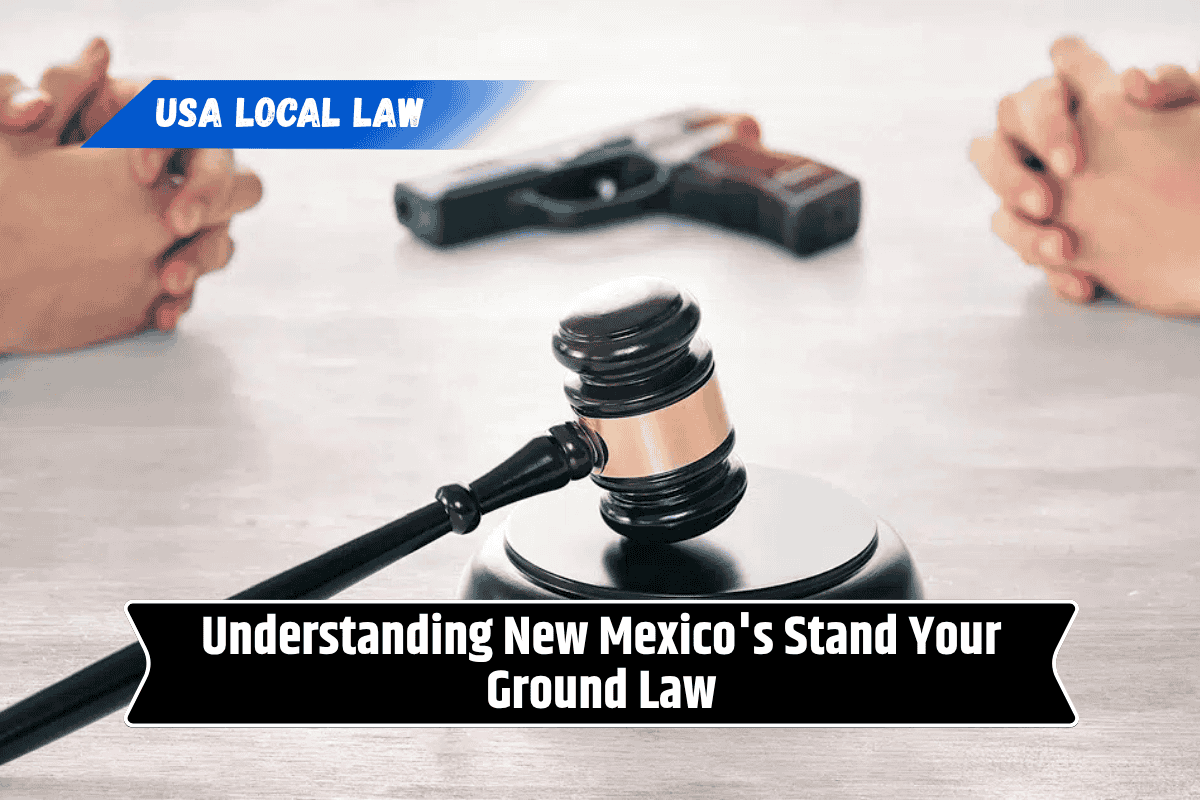New Mexico’s Stand Your Ground law is a legal rule that allows people to use force, including deadly force, to protect themselves when they feel threatened, without needing to retreat. This law is part of self-defense rights and has a significant impact on how individuals can respond to danger.
It is important to understand what this law allows, its limits, and how it works in real-life situations. Let’s break it down to help you understand the law better.
What Is New Mexico’s Stand Your Ground Law?
New Mexico’s Stand Your Ground law allows individuals to defend themselves with force, even deadly force, when they believe their life is in danger.
Under this law, there is no requirement for a person to retreat or run away before using force in self-defense. This law applies in both public places and in a person’s home, also known as the “Castle Doctrine.”
Key Points of the Stand Your Ground Law in New Mexico
Self-Defense: The law protects people who use force to defend themselves, their family, or others. If someone is trying to harm you or your loved ones, the law gives you the right to protect yourself.
No Duty to Retreat: The law eliminates the need to try to escape or avoid the threat. If you feel in danger, you don’t have to leave the situation before acting in self-defense.
Reasonable Fear of Threat: You must have a reasonable belief that you or someone else is in immediate danger. If there is no threat or the fear isn’t reasonable, using force could be seen as unlawful.
Deadly Force: The law allows the use of deadly force if the person feels their life is at risk. However, this only applies when the force is considered reasonable and necessary to stop the threat.
When Does the Stand Your Ground Law Apply?
The Stand Your Ground law is usually used in situations where a person is threatened with serious harm or death. Here are a few examples of when the law might come into play:
Home Invasion: If someone breaks into your house and threatens you, you have the right to use force to protect yourself and your family.
Robbery or Assault: If you’re being robbed or assaulted in public, and you fear for your life, you can defend yourself with force.
Carjacking: If someone tries to steal your car or attacks you while you’re in it, you may be allowed to use force to protect yourself.
Limitations of the Stand Your Ground Law
While the Stand Your Ground law offers strong protection for self-defense, there are limitations:
Excessive Force: Using more force than necessary can lead to legal consequences. For example, shooting someone who is no longer a threat could result in criminal charges.
Illegal Activity: If you are involved in illegal activities at the time of the threat, you may not be able to claim self-defense under the law. For example, if you’re the one starting a fight, you might lose the right to use force in self-defense.
No Defense Against Police: The law does not protect you if you resist arrest or try to harm a law enforcement officer, even if you feel threatened.
How Does the Law Work in Practice?
When someone claims they acted under the Stand Your Ground law, it’s up to the court to decide whether the force used was justified. This typically involves:
Reviewing the Situation: Investigators and courts will look at all the evidence, such as eyewitness testimonies and physical evidence, to determine if the person had a reasonable fear of danger.
Proving the Threat: The person who used force must show they had a genuine fear of harm. If the situation wasn’t dangerous, or if they overreacted, the court may rule that the force used was excessive.
Self-Defense vs. Aggression: Courts will also look at who started the conflict. If you were the aggressor or provoked the attack, it may be difficult to use the Stand Your Ground law in your defense.
New Mexico’s Stand Your Ground law offers important protection for individuals who need to defend themselves from threats. It allows people to use force, including deadly force, when they feel in danger without needing to retreat. However, the law has certain limits, and it is crucial to understand the difference between legitimate self-defense and unlawful actions.
Always make sure the response is reasonable and necessary to stop the threat. If you’re ever in a situation where you need to defend yourself, remember that the law’s protections are there, but you must use force responsibly and within the boundaries set by the law.
